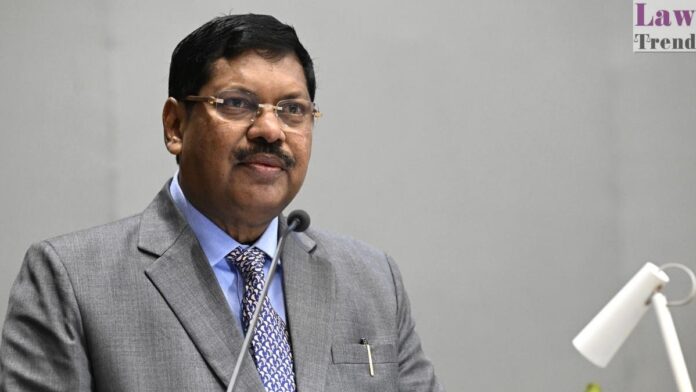Chief Justice of India (CJI) B R Gavai has underscored the importance of socio-economic justice as an indispensable pillar of democracy, asserting that no nation can claim to be truly progressive or democratic without addressing the structural inequalities that marginalise large sections of society.
Delivering a keynote address at a function in Milan on the theme “Role of Constitution in Delivering Socio-Economic Justice in a Country: Reflections from 75 Years of Indian Constitution”, CJI Gavai said, “Justice is not an abstract ideal—it must take root in social structures, in the distribution of opportunity, and in the conditions under which people live.”
He described socio-economic justice as a “practical necessity” for ensuring long-term stability, social cohesion, and sustainable development. “It is not merely a matter of redistribution or welfare, but of enabling every person to live with dignity, realise their full human potential, and participate as equals in the social, economic, and political life of the country,” he stated.
Personal Reflection on Constitutional Values
CJI Gavai invoked his own journey, saying he is “a product of the very constitutional ideals that sought to democratise opportunity and dismantle barriers of caste and exclusion.” Coming from a historically marginalised community, he credited India’s affirmative action framework as a concrete expression of the Constitution’s vision for substantive equality.
Thanking the Chamber of International Lawyers for inviting him to speak, he described the 75-year journey of India’s Constitution as “a story of great ambition and important successes.” He said the Constitution, adopted in 1950, was not merely a legal framework but “a revolutionary statement and a ray of hope” for a society grappling with colonial legacy, poverty, and social division.
Law as a Tool for Social Transformation
“The Constitution gave us the vision, the tools, and the moral guidance. It has shown us that law can be a force for empowerment, a tool for social change, and a protector of the vulnerable,” the CJI said.
Referring to landmark developments, CJI Gavai recalled the 1973 Kesavananda Bharati case which defined the basic structure doctrine and involved a tussle between Parliament and judiciary over constitutional amendments. He noted that while this is often seen as institutional conflict, it actually reflected the country’s efforts to realise socio-economic rights.
Rule of Law and Recent Verdicts
Highlighting recent jurisprudence, the CJI cited the Supreme Court’s ruling on illegal demolitions by state authorities. “The court held that arbitrary demolitions which bypass legal processes violate the rule of law and the fundamental right to shelter under Article 21,” he said, adding that “the executive cannot become judge, jury, and executioner all at once.”
This, he said, reaffirmed the judiciary’s role in protecting not just civil liberties but also the material well-being and dignity of the marginalised.
Judiciary and Parliament: Shared Responsibility
CJI Gavai acknowledged that both Parliament and the judiciary have significantly expanded the scope of socio-economic rights in the 21st century. Citing initiatives to reduce poverty, generate employment, and ensure access to housing, healthcare, and food, he said these efforts reflect the evolving constitutional commitment to inclusive development.
Concluding his address, he remarked, “Socio-economic justice is a crucial aspect of national progress. It ensures that development is inclusive, that opportunities are equitably distributed, and that all individuals, regardless of background, can live with dignity and freedom.”




